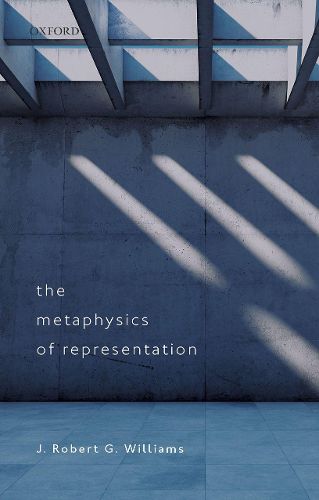Readings Newsletter
Become a Readings Member to make your shopping experience even easier.
Sign in or sign up for free!
You’re not far away from qualifying for FREE standard shipping within Australia
You’ve qualified for FREE standard shipping within Australia
The cart is loading…






Representing the world is a puzzling thing. How can it be that mundane events such as processing a thought–and from there putting those thoughts into words–acquire this property of ‘aboutness’? How can expressions, which depend on anything from the most fundamental regularities in the universe to trivial matters of gossip, be either true or false? In The Metaphysics of Representation, J. Robert G. Williams tells a story about how representational properties arise out of a fundamentally non-representational world. The representational properties of language are reduced, via convention, to the representational properties of thoughts. The representational properties of thoughts are reduced, via principles of rationalization, to the representational properties of perception and intention. And this most fundamental layer of representation is explained in terms of the functions they have to communicate. Williams integrates work from rival traditions to present a combined perspective in the metaphysics of representation, give new predictions and explanations of representational phenomena, and offer new solutions to long-standing problems.
$9.00 standard shipping within Australia
FREE standard shipping within Australia for orders over $100.00
Express & International shipping calculated at checkout
Representing the world is a puzzling thing. How can it be that mundane events such as processing a thought–and from there putting those thoughts into words–acquire this property of ‘aboutness’? How can expressions, which depend on anything from the most fundamental regularities in the universe to trivial matters of gossip, be either true or false? In The Metaphysics of Representation, J. Robert G. Williams tells a story about how representational properties arise out of a fundamentally non-representational world. The representational properties of language are reduced, via convention, to the representational properties of thoughts. The representational properties of thoughts are reduced, via principles of rationalization, to the representational properties of perception and intention. And this most fundamental layer of representation is explained in terms of the functions they have to communicate. Williams integrates work from rival traditions to present a combined perspective in the metaphysics of representation, give new predictions and explanations of representational phenomena, and offer new solutions to long-standing problems.